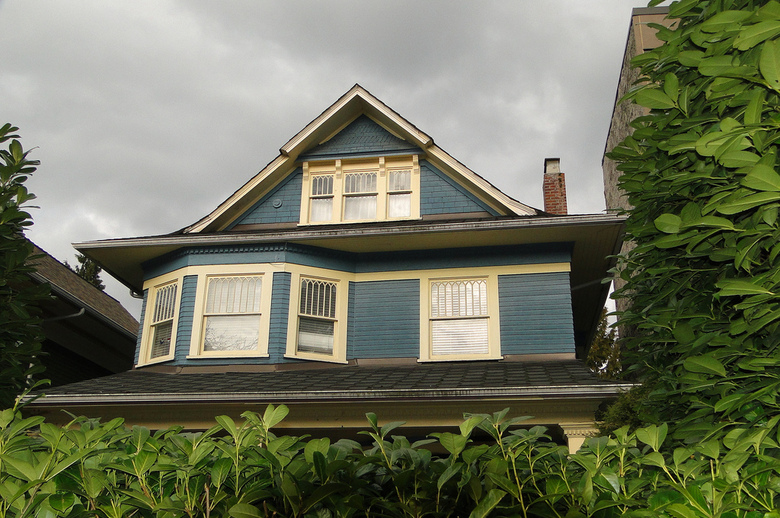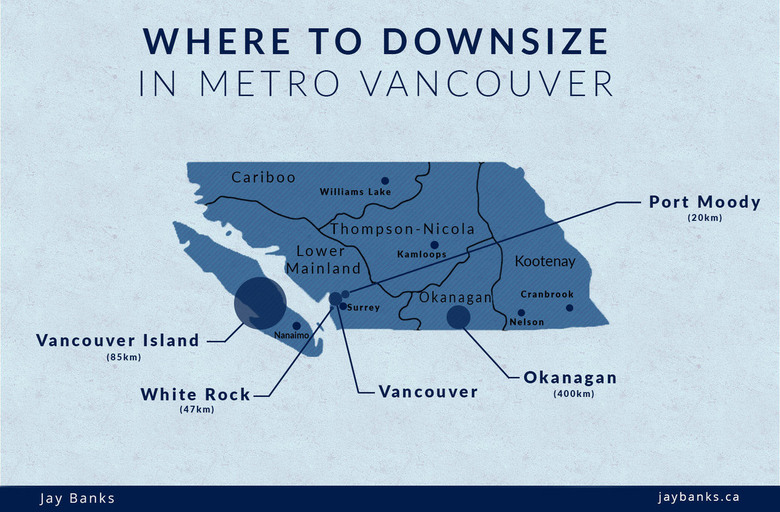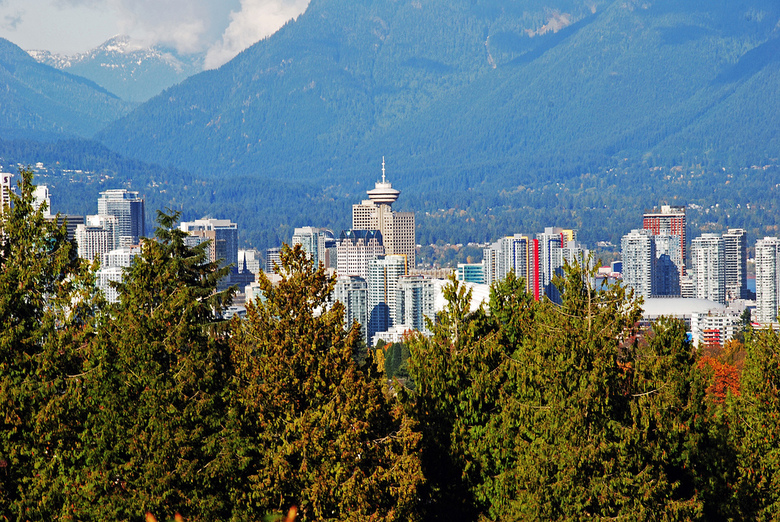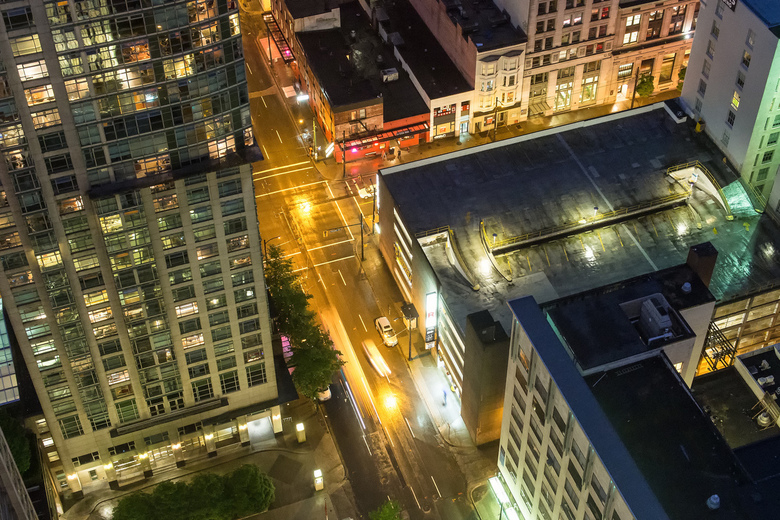There are not too many certainties in life, but if you live in Vancouver, you can be certain of a few things: winters will be rainy, people will complain about the rain, and, if the current numbers are any indication, housing prices will continue to rise. Over the past year, housing prices have risen by 20%, and the average price for a home in Vancouver is now a record $1.47 million. Add increasing international investment plus Canada’s aging population to the mix, and we have an interesting future ahead of us. Statistics Canada recently reported that there are now more people over 65 in Canada than there are kids under 15, and the Conference Board of Canada has predicted that more than 80% of Canada’s new housing demands will come from people over the age of 65 over the next 18 years.
 Coal Harbour Condos by Colin Knowles
Coal Harbour Condos by Colin Knowles
For many Vancouverites facing an empty nest or contemplating retirement, these numbers point to a lot more competition and fewer options in the downsizing department than we’ve had in years past. All of this might make downsizing sound like a daunting task, but if you’re aware of what you’re getting into, there are several options you can look at to make the switch to a smaller place easier, more affordable, and more enjoyable for everyone involved.
Adjust Your Expectations
The most difficult part of downsizing is developing the right expectations.
Canada is the biggest consumer of real estate shows,
says Brenda Kinnear, Associate Broker with RE/MAX Crest Realty Westside in Vancouver.
This often has the effect of raising people’s expectations of what they can afford.
So while you may be expecting to sell your older home and move into one of the freshly decorated suites from your favourite episode of House & Home TV or the local upscale condo display unit, what you get in reality might be much different (at least if you want to spend less than what your current home is worth.)
 Vancouver BC Canada West End by Adam Jones
Vancouver BC Canada West End by Adam Jones
Having a conversation with your real estate agent can help put you on the right page in terms of what you can realistically afford right now. Once you know what to expect, you can begin to narrow down your options without being disappointed with the choices you end up with.
Consider Moving Farther from the City Centre
One option Kinnear recommends for Vancouver-based downsizers is moving farther away from the city centre. The trick, however, is finding a balance between affordability and other factors like walkability, transit access, medical services, and of course proximity to family and friends. Resources like walkscore.com are great for comparing the walkability score of your preferred neighbourhoods as well as other factors such as transit access, local amenities, and even crime rates.
Be aware, however, that the price of downsizing in certain neighbourhoods will change as those neighbourhoods become more popular. While the South Surrey / White Rock area used to be a preferred destination for budget-conscious downsizers,
These days, the prices in gated townhome communities in South Surrey and White Rock are through the roof. An alternative I recommend is to look to places like Coquitlam Town Centre and Newport Village in Port Moody for both townhomes and spacious condo apartments,
says Kinnear.
Another option she recommends is to skip town completely and head to a place like nearby Vancouver Island or the more distant Okanagan. This will give you access to both lower housing costs and other potential benefits such as better proximity to medical services. Another positive aspect of leaving the lower mainland could be the change in climate; the Okanagan boasts the sunniest weather in BC, while Nanaimo and adjacent communities of Parksville and Qualicum Beach are home to the most temperate climate in Canada. These advantages can also come at a cost, however – those seeking the comfort of Vancouver Island with its 90 minute ferry trip from the mainland will have escalating fare prices and wait times to deal with, while downsizers headed for the sunny Okanagan cities of Osoyoos, Kelowna, Penticton and Vernon will have to navigate the 400 km drive through the Interior over the 1200 metre Coquihalla Summit and down Hwy 5 every time they want to get back to the coast.
Financial benefits aside, there are other good reasons to consider moving away from Vancouver’s busy city centre. Many downsizers are looking to stay away from staircases, which is a near-impossible task in Vancouver if you choose an attached townhome.
Most places in Vancouver are like Stairmasters,
says Kinnear.
 Queen Elizabeth Park Vancouver BC by WriterGal39
Queen Elizabeth Park Vancouver BC by WriterGal39
Getting away from the city centre can also be a good choice simply from a lifestyle point of view – the hectic pace of life in the city may have been appealing when you were a 20-something fresh out of college, but it might not be exactly the pace of life you’re looking for as you approach retirement.
Consider Older Properties
Everybody wants new: most Vancouverites tend to avoid older properties with a passion,
Kinnear explains.
Just say the words "leaky condo" to anyone who lived in the lower mainland during the 1990s and you’ll know why. Fortunately those days are behind us and new building codes and regulations mean that buying an older property in Vancouver is much less risky than it used to be.
Any new build or renovation since 2001 has been subject to Vancouver’s new building code, which is more rigorous and more specific than what existed previously. So if you like the feel of a new build but want to keep costs down, recently renovated properties can be a good place to start.
Sometimes older is better, as you can often get more for your money with an older property. Even if a building hasn’t been recently renovated, you can do some homework to determine whether or not buying a unit will be a good investment. When looking at older properties, make sure to request a copy of the Depreciation Report, now mandated by the Strata Property Act. This report, often called a Reserve Fund Study elsewhere, will tell you what sort of shape the building is in, and includes projected costs for building maintenance over a period of 30 years. You can request a depreciation report as a subject in your offer, and your realtor can help you go through the report to make sure you understand it.
 Park by Kenny Louie
Park by Kenny Louie
In addition to the depreciation report, you need to request other documents such as engineering and maintenance reports as well as the strata’s financial documents including a Form B from the property management company which delineates the numbers of rentals, any lawsuits or outstanding liens plus the status and monthly maintenance fees of the unit you are offering on. And of course it’s always a good idea to have the unit as well as the whole building looked over by a qualified building inspector before committing to a purchase. While it’s never possible to tell when something will break down, getting as much information as you can about the state of the building, both physical and financial, will help you determine whether or not buying a unit will be a wise choice for your financial future.
Once you know what to look for and what to expect, you should be able to refine your search to the right neighbourhoods and the right types of buildings for your needs. Downsizing may not be for everyone, but if you’ve made the choice to simplify, make sure you explore all of your options thoroughly before making your final decision; looking beyond your initial expectations might actually open up some great possibilities you hadn’t considered before.
CW00DT





I think Vancouver Island is not really ”commuting distance” from the mainland and would work only for those with flexible working time or working from home. Daily commute requires a lot of time and planning.